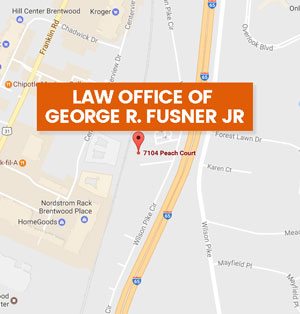Drowsy driving has proven to be a major issue here in Nashville and all across the U.S. Drivers who get behind the wheel of their vehicle tired not only increase their chances of getting into a wreck, but they also put the lives of those traveling around them at risk. The National Safety Council (NSC) says that “every year, about 100,000 police-reported crashes involve drowsy driving” and of these crashes, approximately 1,550 people are killed and another 71,000 suffer injuries.
While most think distracted driving is the most common factor that causes wrecks, drowsy driving stands right there next to it as another contributing factor.
While we discourage every individual out there who is responsible for operating a vehicle to never get behind the wheel of their car when tired, we must emphasize how important it is for truckers to take a break when they are feeling fatigued. Large commercial trucks weigh a substantial amount more than the average passenger vehicle and when they have a wreck, they often cause those involved to suffer serious and even fatal injuries. Did you know that some commercial trucks weigh up to 80,000 pounds? That’s nearly 22 times the weight of a midsize car!
Because a large commercial truck has the potential to cause a deadly wreck, we encourage any truckers out there to consider and implement these driving tips provided on behalf of the Federal Motor Carrier Safety Administration (FMCSA) that aim to prevent driver fatigue.
- Get enough rest before getting behind the wheel.
Although it is easier said than done, it is essential that you get in the recommended amount of rest each night (or day if you work nights) so that your body is reenergized and capable of operating a truck safely. The Mayo Clinic says that adults should be getting in between seven to nine hours of rest each night.
- Maintain a healthy diet.
According to a study that was conducted on the sleeping and driving habits of commercial motor vehicle operators, “an unhealthy lifestyle, long working hours, and sleeping problems were the main causes of drivers falling asleep while driving” [Source: FMCSA]. Therefore, FMCSA discourages skipping meals or eating at irregular times as this could lead to fatigue and even food cravings. Instead, try having a light snack before bed to avoid getting hungry during the night and refrain from eating a heavy meal right before bed as this could “interfere with [your] sleep.”
- Take a nap when you need it.
As hectic of a schedule as you might have, it is important to listen to your body and address your needs. If you are on the road and begin to feel tired, the FMCSA recommends that you take a nap. Did you know that “short naps are more effective at restoring energy levels than coffee?” Instead of loading up on caffeine and becoming tired shortly after consuming a cup of coffee, consider pulling over for a nap that might last anywhere from 10 minutes to 45 minutes so that you restore your energy levels and can safely continue driving.
- Avoid taking any type of medication that has the potential to make you drowsy.
If your physician has prescribed you medication but the label warns that it could cause drowsiness, it is important that you don’t take it at a time when you know you will have to drive. You also want to be careful when taking certain over-the-counter medications such as cold medicine as this too can lead to you becoming drowsy.
- Know the signs of drowsiness.
If your eyes begin to feel heavy, you are yawning frequently, or your vision becomes blurred, these are all signs that you are drowsy. Did you know that research has “indicated that being awake for 18 hours is comparable to having a blood alcohol concentration (BAC) of 0.08 percent which is legally intoxicated?” When you begin to notice signs of drowsiness, don’t ignore them. Instead, pull off to the side or stop in a safe place for a break.
- Don’t rely on certain tricks that are supposed to keep you awake.
While we have been told that drinking coffee, putting the music up loud, opening the window, etc. will all help wake you up, the FMCSA says that these “are not real cures for drowsiness and may give you a false sense of security.”
As a trucker who is responsible for carrying large loads or transporting hazardous materials, it is important that you always operate your vehicle when you are well rested and alert. In the event you were recently involved in a truck wreck in TN that was caused by another driver, then Nashville, TN truck accident attorney George R. Fusner Jr. is here to help you understand your rights as a victim. If you would like to find out what you need to do to exercise your rights and even recover compensation for damages, contact our office today by calling 615-251-0005.
You can reach the Law Office of George R. Fusner Jr. at
7104 Peach Court
Brentwood, TN 37027
Phone- 615-251-0005
Fax- 615-370-8447
Website: www.gfusnerlaw.com




